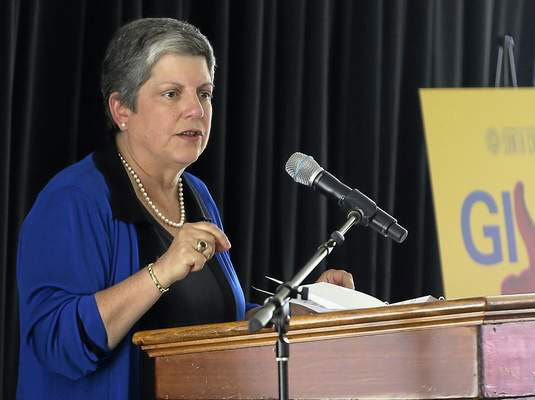Proposed constitutional amendment could strip UC of its independence

By Katy Murphy
Amid widespread fury over tuition-hike threats, two state senators are attempting to strip the University of California of the constitutional independence from the Legislature it has enjoyed since 1878.
Embraced by some, dismissed as a nuclear option by others, a constitutional amendment introduced late this week would — if passed by two-thirds of the Assembly and Senate and approved by voters in 2016 — give the Legislature unprecedented control over UC, likely making it subject to the same laws and oversight as California State University and the state’s community colleges.
“It behooves us, and ultimately the voters, to revisit the concentrated power and autonomy of the UC Board of Regents which appears to be out of touch with average working-class families,” said Sen. Ricardo Lara, D-Bell Gardens, who introduced the bill Thursday with Anthony Cannella, R-Ceres.
But cautionary voices are being raised in fear of subjecting one of the nation’s most prestigious public universities to the tumult and pressures of Sacramento politics. And it’s unclear how the power shift would resolve the nagging money problems that have caused UC to increase tuition and admit more out-of-state students — two key areas of legislative concern.
“It’s more likely that the Legislature would be interested in efficiencies and keeping costs down than they would in keeping quality up,” said Steve Woolpert, a politics professor and dean of liberal arts at Saint Mary’s College in Moraga.
Simply getting the controversial measure on the ballot is a long shot. A similar attempt by former Sen. Leland Yee in 2009 — also in response to tuition increases and executive pay raises — failed even to reach the Senate floor.
“UC has a pretty influential voice in the Legislature,” Woolpert said. “It’s a powerful institution, it’s well respected, and its reputation is part of the argument for keeping it independent.”
But some students, frustrated by the appointed board of regents — who in September approved raises for campus chancellors and in November voted to increase student fees by up to 28 percent by 2019 — find the idea of more oversight and accountability promising.
“On the surface already it’s something we’re looking forward to supporting,” said Caitlin Quinn, a UC Berkeley student and external affairs vice president for the Associated Students of University of California.
Unlike state lawmakers, who answer to their constituents, the regents are appointed by the governor and serve 12-year terms.
As a body, Quinn said, “I’d say they’re pretty out of touch.”
The amendment’s current language includes few details about the kind of authority the state would wield over UC, aside from a line about not interfering with academic freedom or imposing curricular requirements on students.
But that caveat doesn’t reassure Mary Gilly, head of the UC Academic Senate, because she’s already seen political interference at CSU. A law to smooth the path for CSU’s community college transfer students directly affects CSU’s academic policy and graduation requirements, she said.
“They interfere now with Cal State curriculum questions and so forth, and I don’t know what would prevent them from doing that with us,” she said.
Gilly said she worries about the Legislature’s “knee-jerk” reactions to complex UC problems. Indeed, this proposed amendment — which could have sweeping implications for the 10-campus system and the state — was made in reaction to the regents’ tuition vote.
“It seems to be someone looking for a tool or a weapon to use in reaction to the proposed tuition increases,” Gilly said. “It seems to be a nuclear weapon.”
Another new legislative proposal, also in response to the tuition plan, could give state lawmakers more control — or at least, more of a say — in the intricacies of UC’s budget. Assembly Speaker Toni Atkins announced this week that the university would be subjected to a public, line-by-line review of its budget, starting next year.
Some observers wonder if UC President Janet Napolitano anticipated this backlash when she made her tuition-increase recommendation.
“President Napolitano was a governor, so she knows the political process,” said Bill Tierney, co-director of University of Southern California’s Pullias Center for Higher Education. “I am not certain whether she thought the kickback she would get would be as vociferous as it has been. Maybe she has.
“But clearly her recommendation and the vote by the board has an odd coalition of the governor, legislators and students all on the same side, against the UC regents and president.”
[Source]: Santa Cruz Sentinel


